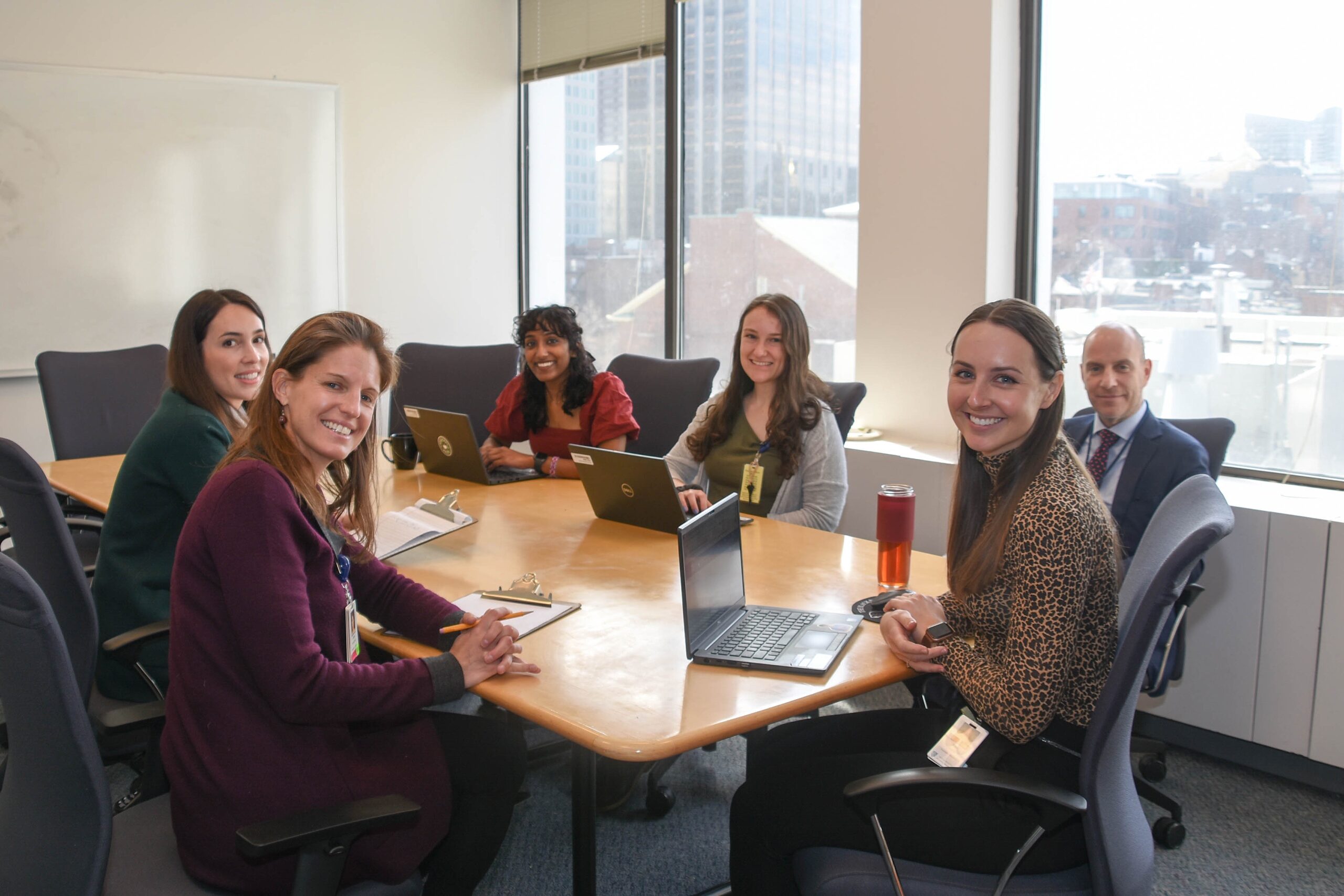Find a CBT Therapist
Search through our directory of local clinicians.
Louisa Sylvia is an associate director at the Dauten Family Center for Bipolar Treatment Innovation at Massachusetts General Hospital.
Meet ABCT’s Featured Lab
Dr. Louisa Sylvia is an associate director at the Dauten Family Center for Bipolar Treatment Innovation, which is located at Massachusetts General Hospital.
Trainee Lab Members
We asked each of the trainee members about their area of research interest.
Nicole Stephan, B.S.: “I hope to use a public health lens to better population mental health outcomes—specifically by improving access to care, evaluating which interventions are most effective for certain populations, and using community-based participatory practices with a focus on identity, culture, and environment.”
Caylin M. Faria, B.S. is interested in studying the impact of psychosocial and cognitive factors on mood disorders, particularly within marginalized groups.
Matan Levine-Janach, B.A.: “I am interested in better understanding the mechanisms that underly different psychotherapeutic approaches. In addition, I’m passionate about examining the demographic factors that moderate the effectiveness of dialectical behavior therapy for the treatment of mood disorders.”
Louisa Sylvia, M.D.
Dr. Louisa Sylvia is the associate director at Dauten Family Center for Bipolar Treatment Innovation at Massachusetts General Hospital (MGH), director of the MGH Office for Women’s Careers, and an associate professor at Harvard Medical School. Dr. Sylvia’s research interests entail developing resilience and wellness programs, both delivered online as well as in-person, for individuals with mood disorders. Dr. Sylvia has published over 150 manuscripts, co-authored a workbook for Bipolar II Disorder, and authored the Complete Wellness Workbook for Bipolar Disorder. Dr. Sylvia received her doctoral degree in Clinical Psychology at Temple University.
The Dauten Family Center for Bipolar Treatment Innovation specializes in expert pharmacological, neuromodulation, and psychosocial treatment of bipolar disorders. Psychiatrists, psychotherapists, practicum trainees, and research assistants have extensive experience conducting large-scale clinical trials. Research has been funded by the National Institute of Mental Health (NIMH), the Patient Centered Outcomes Research Institute (PCORI), the Agency for Healthcare Research and Quality (AHRQ), the American Foundation for Suicide Prevention, the Brain and Behavior Research Foundation, as well as pharmaceutical companies and philanthropy. We welcome all opportunities to collaborate to find innovative treatments to get better outcomes that matter to people with bipolar disorder.
How long have you been a member of ABCT?
I have been a member since 2000.
How often and why do you attend the ABCT convention?
I have attended the ABCT convention almost every year since 2001. I attend the convention because it is the best opportunity to hear from my colleagues about their cutting-edge, innovative research as well as recent advances (and potential challenges) with implementing psychosocial interventions. I also attend as it is a wonderful opportunity to network and connect with my colleagues as well as discuss topics relevant to my career as a psychologist (e.g., work/life balance, starting and maintaining independent research).
How do you stay current with developments in the field?
I stay current by reading several of my favorite psychology journals, writing review articles in areas that I want to dig into the literature, collaborating with colleagues in the field with whom we regularly exchange ideas, attending Grand Rounds, other talks, and conferences – such as ABCT!
How has ABCT helped you lab professionally?
ABCT has been instrumental in disseminating information to generate new ideas and collaborations. It has also helped to create a community of individuals focused on similar areas of clinical research, which is utilized throughout the year (i.e., between ABCT conventions).
Does your lab have any traditions? Does your lab do anything together for fun?
One of my favorite traditions is that we invite all previous (and current) trainees in the Dauten Center out to dinner at the ABCT convention. This dinner started with 5-10 people and has grown to over 20 people. It has been a wonderful way to re-connect with people as well as build collaborations amongst researchers in the field of mood disorders.
What advice would you give prospective trainees?
My best advice is to take it slow. You have more time than you think to make your mark; it does not have to happen in your first few years out of graduate school. Your career is a journey and you want to enjoy the process and not be too overly focused on the outcomes.

